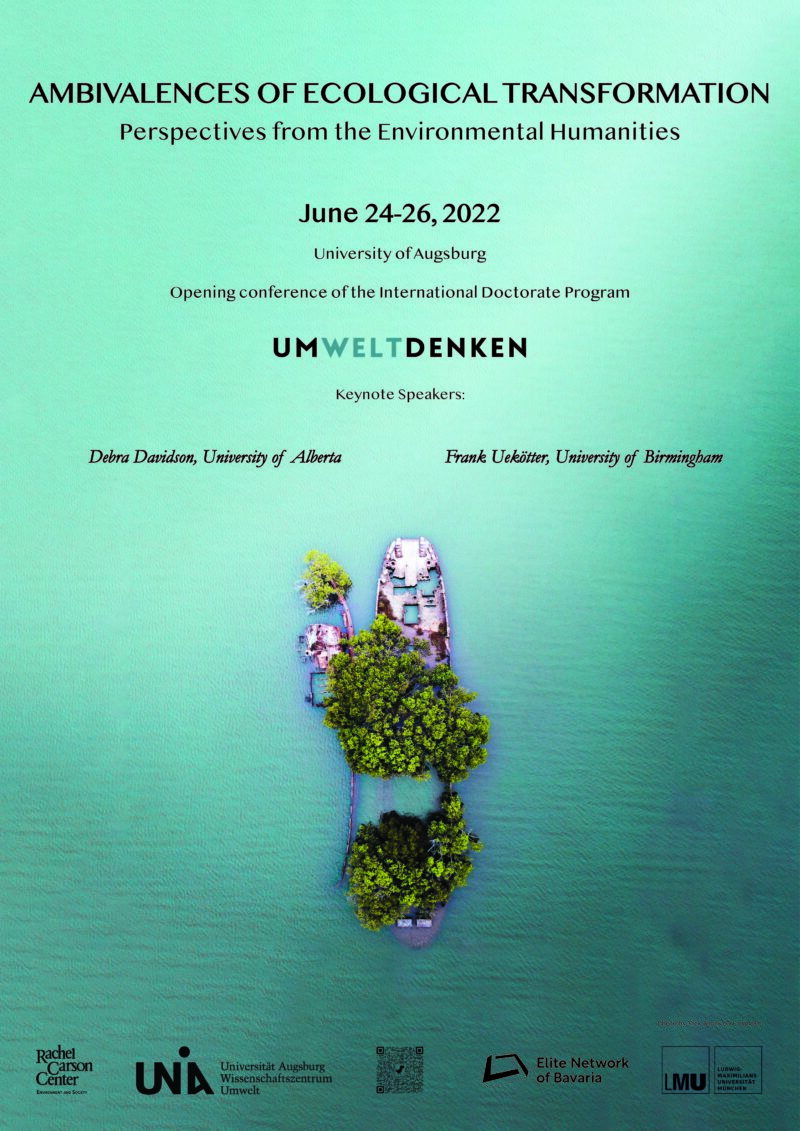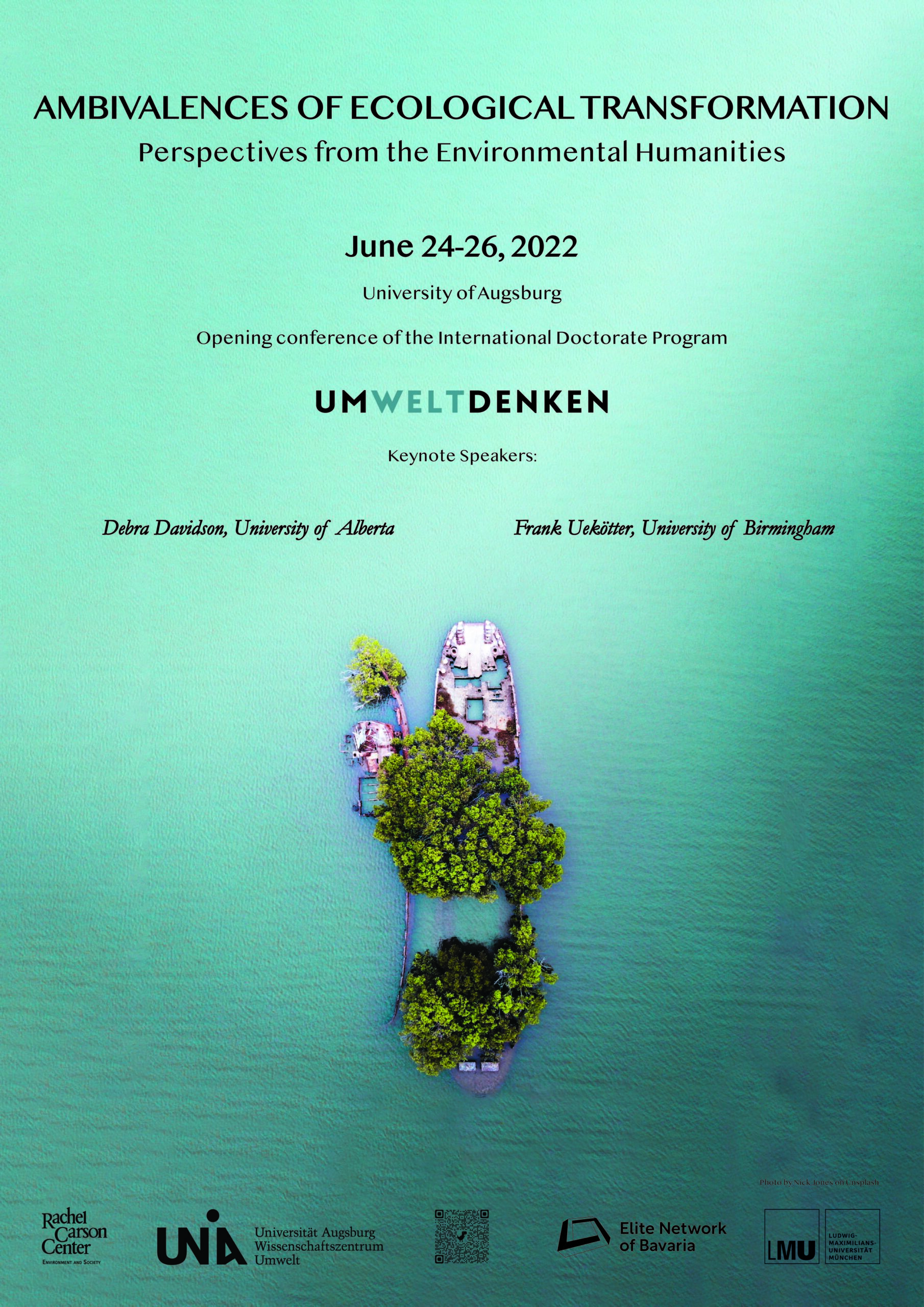
Poster created by Talitta Reitz for the IDK UmWeltDenken
International Conference: Ambivalences of Ecological Transformation
Ambivalences of Ecological Transformation.
Perspectives from the Environmental Humanities
Opening conference of the International Doctorate Program (IDK) Um(Welt)Denken. The Environmental Humanities and the Ecological Transformation of Society; University of Augsburg & Rachel Carson Center, LMU
June 24-26, 2022, University of Augsburg
Transformations are urgently needed, politically, ecologically, and socially. All over the world, there exists a consensus on the necessity of social-ecological change to combat some of the direst environmental issues, ranging from climate change and biodiversity loss to aridification, and the toxic pandemic. Yet, this consensus rapidly evaporates, once measures become concrete, and tensions arise over at what and whose costs necessary changes are implemented.
Ambivalences, ambiguities, tensions, paradoxes, or pitfalls—there are many terms associated with the same phenomenon—namely that late 20th and 21st centuries environmental governance and policy has maneuvered itself into an apparent dilemma. Conflicting reactions, beliefs, or feelings towards the same object, are integral to the painfully slow political and social negotiation and transformation processes, a paralysis almost, to save planet Earth at a time when many scientists and activists assert that the house is already on fire and anti-Environmentalists continue pivoting growth against sustainability. In industrial countries, some point to the need of a technologically driven ecological modernization, while others underline the externalization of environmental costs and our “imperial mode of living”. Many emerging economies cling to their “right to pollute” on a pathway to first overcome poverty before pollution, citing centuries of colonial exploitation and global injustice. In the renewable energy sector, for instance, models struggle with the fact that palm oil farms are destroying large areas of rainforest, one of the most important CO2 sinks to combat climate change. These growing tensions, finally, also have become a test for democracy as Fridays for Future, Extinction Rebellion and other activist groups have taken their frustration over the political paralysis to the streets, and several governments around the world are facing resistance or even liability suits from their citizens for their climate protection policies and necessary transformations.
What forms of ambivalences exist towards needed ecological transformations and how are they articulated? Which (communication) models, new approaches or ethics may help to move beyond? A number of different disciplines, ranging from Environmental Ethics, Environmental History, Human Geography, Economics, and Ecocriticism, have sought to understand the stalemate of environmental transformation and are musing on ways to move beyond. Under the umbrella of the inter- and transdisciplinary Environmental Humanities, this international conference Ambivalences of Ecological Transformation – Perspectives from the Environmental Humanities seeks to (1) tease out different modes of and discourses on ambivalences impairing ecological transformation and to (2) discuss new (scholarly, practical, and communicative) approaches to move beyond. We invite contributions and interventions on topics relating to these two issues from both junior and senior scholars, science-communicators, and practitioners. As an exercise in interdisciplinary research, we are also keen (3) on establishing a shared vocabulary and common language for understanding and working with ambivalences as a concept in Environmental Humanities and also invite conceptual reflections. We intend an edited publication based on paper presentations and discussions.
If you have questions concerning the conference, please contact Talitta Reitz, IDK program assistant, talitta.reitz@rcc.lmu.de
This conference is organized by the International Doctoral Program (IDK) Um(Welt)Denken – Environmental Humanities and the Ecological Transformation of Society, a joint international graduate program of Augsburg University and the Rachel Carson Center for Environment and Society, LMU, funded by the Elite Network of Bavaria.
Check out the conference program.

